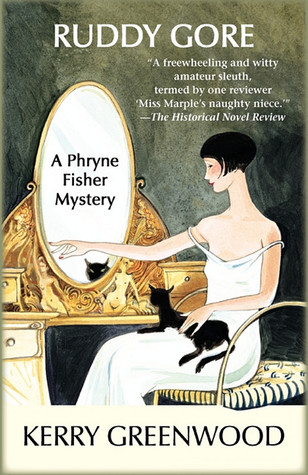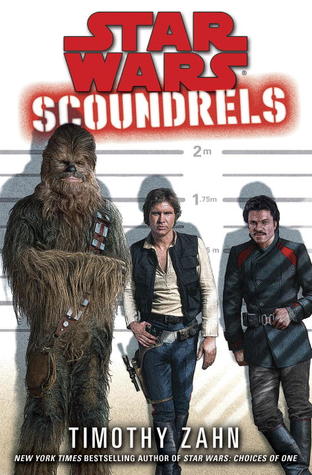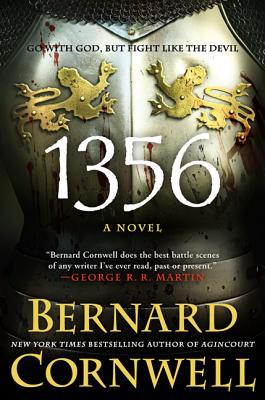
5 out of 5 stars
Okay, I really hate Ann Aguirre. I am dead serious here. She writes the best action-adventure/sci-fi/fiction/YA of anyone out there today. To the point where I could literally swallow my tongue out of jealousy whenever I read one of her books. Hyperbole? Nope, not even close.
Horde is the final book in Aguirre's Razorland Trilogy , and what a finale it is! If Enclave was the skeleton and Outpost was the muscles and organs, Horde is the tattooed, punk-ass skin on this most awesome literary creation. Horde begins where Outpost left off: the town of Salvation is under siege by Freaks, the remnants of humanity gone savage, and in order to save the place they've come to love and call home, Deuce, Fade, Stalker, and Tegan must leave their families behind in order to find help in one of the surrounding settlements. But this is no mere rescue mission. Because things have changed. The Freaks are no longer just the mindless beasts they once were; they've become more cunning and resourceful, and in order to save her family and free humans from the threat of these mutants, Deuce will learn to lead an army which has forgotten how to fight. This war isn't just for the sake of her family or the families in Salvation, however. This is a war to save the entire human race, a war that must be won at all costs, and that's a burden Deuce might not be able to carry.
When I started reading this book, I promised myself that I would try to take it as slow as possible, in order to savor it, but I couldn't help myself. Aguirre throws you right into the action and makes it impossible to slow down. Which is probably why I stayed up until 6 a.m. the day I finished reading this. Even as I reached the end and was satisfied every step of the way, I mentally cried because I just did not want the story to end. (I might've also physically cried a little bit as well.) Deuce has been such a fascinating, deep, and rich character from beginning to end, and part of that comes from Ann's writing in that she's allowed Deuce to grow and to change as she learns more about herself as well as the people and world around her. Yet Deuce isn't alone; the supporting characters are all real and tangible individuals, making us care for them even as Ann plays with their “lives,” even going so far as killing someone off in a scene you'll never see coming. The bitch. And I mean that in the best way because it's only the bravest author who'll let a character die in service of the story, regardless of how much an audience might care for that character. With this novel, Deuce, already having come so far from where she started, has to keep fighting uphill battles every step of the way and Aguirre lets us see her weariness, lets us see when Deuce reaches her breaking point and very nearly snaps, feel her terror, her hopelessness, her confusion and despair. And yet she keeps moving, planting one foot in front of the other and in the end manages to come out of such blackness carrying victory on her shoulders. It's a journey that'll wring you out in so many ways, but is so fulfilling you'll want to cheer.
I have a feeling it's only the easily parsable books that are made into movies, those books that can be broken down into tropes and cliches and easily understood themes so that the dollar sign-eyed movie studio execs do a little dance for joy in anticipation of all the money they'll make off a new tentpole franchise.* Take, for example, The Hunger Games. Don't get me wrong, I read the first book and thoroughly enjoyed it as it's a well-written book. But, the thing is, The Hunger Games is also part of a trilogy, yet as much as I thought the first book was fabulous, I still have not read the other two. With the Razorland Trilogy , I couldn't not read each entry in the series even if I tried. The only way would've been to have physically stopped me, because I had to, I just had to find out what happened next. What trouble would next find Deuce, what would become of her relationship with Fade and Stalker, what Tegan would do to find her courage and place in the world. And those things may sound like issues common to any other YA book or series of recent publication, but with Aguirre's writing, there's always a little something extra, a different take or new angle on the situation. There's always more to the story. Out of the YA trilogies that have lately been made into movies or are in the process of being made, of none of them have I read beyond the first book, no matter how good that first book might've been. Though it may sound mean and counterintuitive, I really hope no movie producer or production company purchases the rights to the Razorland Trilogy , because no-one, no script writer, no director, no studio, could do it justice. Bold claim, perhaps, but just read the books and ask yourself if I'm exaggerating.
I'm not sure any of this is coming out intelligibly and I know I probably sound like some kind of squeeing fan girl. You know what, though? I totally am that squeeing fan girl and proud of it. Taut, tight, well-crafted, and often heartbreaking, her books have totally become my book candy, those titles I hoard miser-style, savor even as I speed through the pages, and turn to whenever I need a comforting pick-me-up.
*I had to edit my previous remarks to be a bit less inflammatory. You'll have to excuse them, and me, as when I wrote this review, I was coming off a major "OMG! I've just read the most awesome book in the world, finishing up the most awesome trilogy in the world!" high. In that kind of situation, enthusiasm overrules any restraint or common sense a person might possess, hence the rather bombastic nature of what I'd written. That said, I realize I'm still courting controversy and anger from others with what I've said in my review; however, I stand by my remarks and opinions.
Read October 28-November 1, 2013
Reviewed for the Amazon Vine Program November 4, 2013









